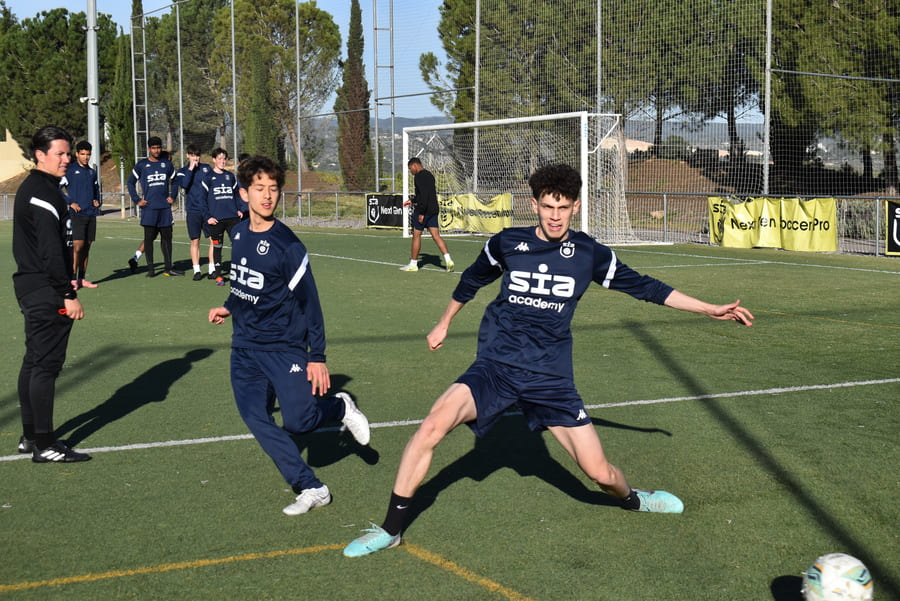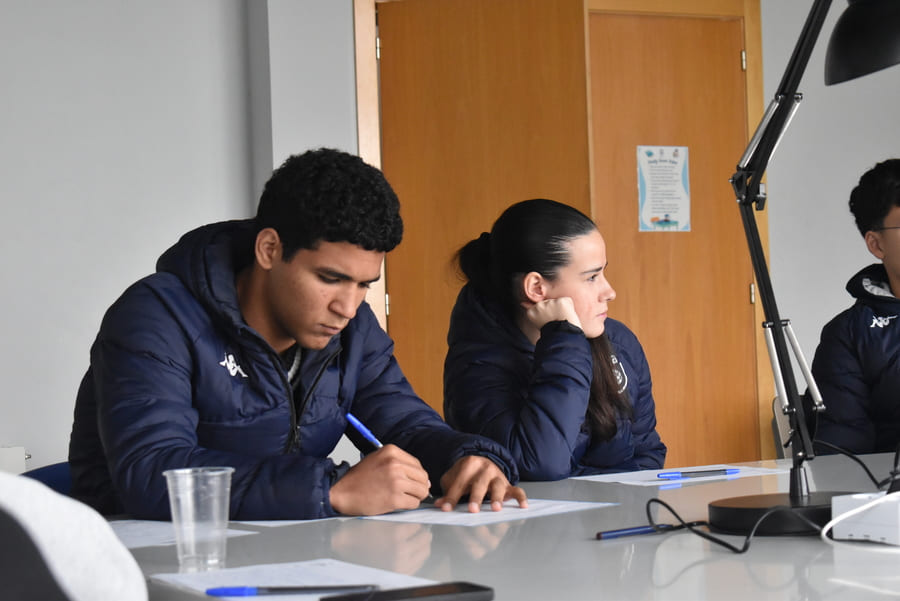Mental habits are repeated thought patterns and behaviors that shape the way we act, feel, and make decisions. In professional football, these habits become decisive, as they not only influence performance on the pitch but also determine a player’s ability to handle pressure, overcome mistakes, and maintain a winning mindset.
Contrary to what many believe, mental strength is not an innate gift—it’s a skill that can be trained. Just like physical and technical abilities, the mind must also be worked on. At SIA Academy, one of the most prestigious high-performance academies in Europe, mental development is part of every player’s foundation.
José Luis, the academy’s sports psychologist, explains it clearly:
“The mind is the footballer’s engine. Training it consistently is just as important as improving your tactics or taking care of your body.”
Below, we explore the top 6 essential mental habits that are cultivated at SIA Academy—and that any aspiring professional should begin developing right away.
Table of contents
1. Positive visualization
Visualization is a technique that involves mentally rehearsing game situations before they happen. It’s not about daydreaming—it’s about preparing the brain to execute actions on the pitch with greater confidence and accuracy.
At SIA Academy, players use visualization as part of their mental preparation. They picture themselves anticipating plays, making smart decisions, and staying composed in key moments.
“It’s not about imagining a perfect match, but about preparing to respond intelligently to each situation,” says José Luis.
This practice boosts confidence, reduces anxiety, and activates the same neural pathways as real experiences, making it a powerful mental tool.
2. Constructive self-talk
How a footballer talks to themselves directly affects their emotional state and performance. Negative self-talk—phrases like “I’m no good,” “I’ll mess this up,” or “not again”—undermines confidence and leads to hesitation.
On the other hand, constructive internal dialogue helps maintain focus, boost self-belief, and push through tough moments. At SIA Academy, players are trained to recognize limiting thoughts and replace them with positive and realistic messages.
“I can handle this,” “I trust my preparation,” “every mistake is a lesson”—these are the kinds of affirmations that help reprogram the mind for optimal performance.

3. Focus routines
Top players often have rituals that help them enter “game mode.” These mental routines prime the brain for peak performance. It could be listening to a specific song, breathing deeply, repeating affirmations, or doing mental imagery.
At SIA Academy, each player works with the psychology team to design a personalized activation routine. This is used before demanding training sessions and competitive matches to ensure the athlete enters with focus, clarity, and emotional stability.
“Routines are psychological anchors. They signal to the brain that it’s time to perform,” explains José Luis.
This habit can be the difference between an average performance and an outstanding one.
4. Pressure management
Playing under high stakes, being watched by coaches or scouts, or facing elimination in a tournament brings inevitable pressure. The key lies in how each player responds to that pressure.
At SIA Academy, players learn to manage pressure by using breathing techniques, mindfulness, and emotional regulation strategies. The goal isn’t to avoid pressure, but to channel it into usable energy.
A player who knows how to calm their mind can stay sharp and decisive even in the tensest moments.
5. Mental resilience after mistakes
Every player makes mistakes. The difference lies in how quickly they bounce back, learn, and keep performing at a high level. Resilience is the capacity to adapt and recover from adversity, and in football, it’s absolutely essential.
SIA Academy trains resilience not as an abstract concept, but as a practical process of reflection, acceptance, and reactivation. After an error, the player is guided to analyze what happened, extract useful insights, and refocus on the game.
“What matters isn’t how often you fall, but how you get back up,” says José Luis. “Every mistake holds valuable information. A smart player uses it and moves forward.”
This habit not only improves on-field performance but also protects the player’s self-esteem and supports a healthy relationship with the game.

6. Growth mindset
The final habit—perhaps the most important—is adopting a growth mindset: the belief that abilities can be developed through effort, learning, and perseverance.
Instead of thinking “I’m not good at this,” the growth-minded player says “I’m not good at it yet, but I can get better.” This perspective fuels motivation, builds discipline, and reduces fear of failure.
At SIA Academy, this mindset is constantly reinforced, in training sessions and psychological coaching alike. Talent is valued—but what really sets great players apart is their commitment to continuous improvement.
“The footballer with a growth mindset improves every day—even off the pitch,” concludes José Luis.
These top 6 mental habits form the invisible foundation of every great footballer. You won’t see them on the stats sheet or in highlight reels, but they are the habits that sustain performance over time, shape personal growth, and build true leaders on the pitch.
At SIA Academy, mental training is not a luxury—it’s a priority. Because modern football doesn’t just demand quick legs or technical precision. It also requires a prepared, focused, and adaptable mind.
Football is played with your feet, but it’s won with your mind.






